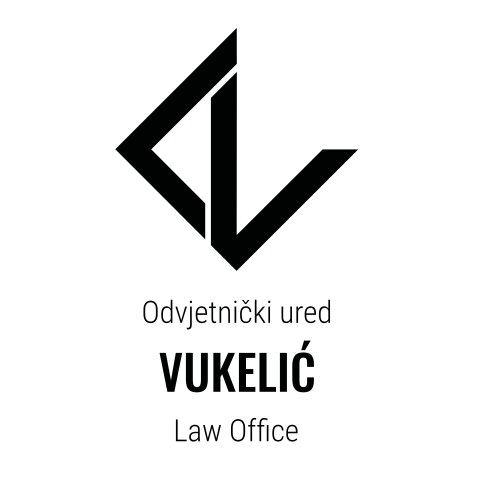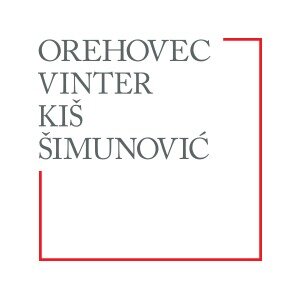Best Conveyancing Lawyers in Zagreb
Share your needs with us, get contacted by law firms.
Free. Takes 2 min.
Free Guide to Hiring a Real Estate Lawyer
List of the best lawyers in Zagreb, Croatia
About Conveyancing Law in Zagreb, Croatia
Conveyancing in Zagreb, Croatia refers to the process of transferring legal ownership of real estate property from one person or entity to another. This includes residential, commercial, and land transactions. The process requires careful handling to ensure compliance with local laws and to avoid potential disputes. In Zagreb, specific procedures and paperwork must be followed, often involving multiple governmental offices, legal documentation, and guidance from qualified professionals.
Why You May Need a Lawyer
There are several situations where having a lawyer during a conveyancing transaction is crucial:
- Reviewing and drafting contracts to ensure legality and fairness
- Conducting due diligence, including title checks and resolving encumbrances
- Assisting with negotiations and deal structuring
- Navigating the requirements for foreign buyers or sellers
- Handling registration with the local land registry office
- Resolving disputes or legal irregularities concerning property ownership
- Managing complex inheritance or co-ownership issues
- Ensuring compliance with tax obligations
Engaging a lawyer can safeguard your rights, lower risks, and streamline the entire process.
Local Laws Overview
Conveyancing in Zagreb operates under Croatian national law with some local regulations. The most relevant laws include the Ownership and Other Real Rights Act, Land Registry Act, and Obligations Act. Key aspects are:
- Property transfers must be in written form and generally require notarization
- All transactions must be registered with the local land registry (Zemljišna knjiga) to become legally effective
- Foreign nationals can acquire real estate in Croatia with some limitations and require special documentation
- Due diligence is critical to confirm the property is free of debts or legal issues
- Transfer tax is mandatory for most transactions at a standard rate, payable by the buyer
- Specific rules apply for properties linked to cultural heritage or under special protection
- If properties are co-owned, consent from all co-owners must be secured
Frequently Asked Questions
What does the conveyancing process in Zagreb involve?
The process includes property due diligence, contract drafting and signing, notarization, payment of taxes, and registration of new ownership with the land registry office.
Can foreign nationals buy property in Zagreb, Croatia?
Yes, but non-EU nationals may need government approval. EU citizens face fewer restrictions, although all buyers must follow standard legal procedures.
Why is a land registry check important?
It verifies the seller's legal right to sell and ensures there are no mortgages, liens, or claims on the property that could affect your ownership.
Is a notary public required for property transactions?
Yes, contracts usually must be notarized for validity and for the land registry to accept the change of ownership.
Are there any taxes when buying property?
The buyer must typically pay a real estate transfer tax, calculated as a percentage of the property value. New build properties may be subject to VAT instead.
How long does the conveyancing process take?
If all documents are in order, the process can take a few weeks, though complications such as title issues can lead to delays.
What risks exist in property transactions?
Potential risks include undisclosed debts, unresolved co-ownership, unpermitted structures, or legal disputes regarding the property. Legal assistance helps mitigate these risks.
Who pays the legal fees and other transaction costs?
Usually, the buyer covers legal fees, notary costs, and taxes, though this can be negotiated with the seller during the transaction.
Are verbal agreements regarding property transactions valid?
No, Croatian law requires property sale agreements to be in writing and, in most cases, notarized to be legally binding.
What documents are required for conveyancing?
Essential documents include ownership proof, identification documents, purchase agreement, land registry extract, and evidence of tax payments. Additional documents may be needed depending on the specifics of the transaction.
Additional Resources
If you need more information or guidance, the following organizations can be helpful:
- Municipal and City Land Registry Offices in Zagreb
- Croatian Chamber of Notaries
- Croatian Real Estate Association
- Ministry of Justice and Public Administration (for regulatory matters)
- Local law firms specializing in property law
These bodies provide various services including legal advice, property record access, and official forms needed for the conveyancing process.
Next Steps
If you require legal assistance with conveyancing in Zagreb, you should:
- Gather all relevant property documents and personal identification
- Contact a lawyer who specializes in property law in Zagreb
- Discuss your situation and clarify your objectives with your legal advisor
- Request an outline of legal costs and expected timelines
- Follow your lawyer’s guidance on contract negotiations, due diligence, and communication with notaries or land registry offices
- Ensure all necessary paperwork is completed and registered
Legal support can prevent costly mistakes and provide peace of mind throughout your property transaction in Zagreb, Croatia.
Lawzana helps you find the best lawyers and law firms in Zagreb through a curated and pre-screened list of qualified legal professionals. Our platform offers rankings and detailed profiles of attorneys and law firms, allowing you to compare based on practice areas, including Conveyancing, experience, and client feedback.
Each profile includes a description of the firm's areas of practice, client reviews, team members and partners, year of establishment, spoken languages, office locations, contact information, social media presence, and any published articles or resources. Most firms on our platform speak English and are experienced in both local and international legal matters.
Get a quote from top-rated law firms in Zagreb, Croatia — quickly, securely, and without unnecessary hassle.
Disclaimer:
The information provided on this page is for general informational purposes only and does not constitute legal advice. While we strive to ensure the accuracy and relevance of the content, legal information may change over time, and interpretations of the law can vary. You should always consult with a qualified legal professional for advice specific to your situation.
We disclaim all liability for actions taken or not taken based on the content of this page. If you believe any information is incorrect or outdated, please contact us, and we will review and update it where appropriate.

















